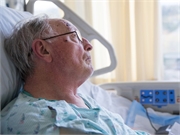
TUESDAY, Oct. 27, 2020 (HealthDay News) -- Factors such as sex, age and severity of the disease may help identify COVID-19 survivors who have high levels of antibodies that can protect against the disease, a new study suggests.
"These were significant patient characteristics that not only predicted the amount of antibody but the quality of that antibody," said lead author Sabra Klein, a professor in the Department of Molecular Microbiology and Immunology at Johns Hopkins Bloomberg School of Public Health in Baltimore.
Specifically, older men who have recovered after a hospital stay for COVID-19 may be good candidates for donating plasma for treating other infected patients, the study suggests.
Plasma trials are continuing, but doctors are unsure how to select COVID-19 survivors who are most likely to have strong antibody responses.
For the study, researchers tested the blood of 126 COVID-19 survivors and found many differences in their antibody levels and their antibodies' ability to neutralize SARS-CoV-2. Factors linked with stronger antibody responses included being sick enough to be hospitalized, being older and being male.
"We know that the magnitude of antibody responses correlates with disease severity in other infectious diseases, such as active tuberculosis," Klein said in a Hopkins news release.
The findings were recently published in the Journal of Clinical Investigation.
More information
For more on COVID-19, see the U.S. Centers for Disease Control and Prevention.
Back

The news stories provided in Health News and our Health-E News Newsletter are a service of the nationally syndicated HealthDay® news and information company. Stories refer to national trends and breaking health news, and are not necessarily indicative of or always supported by our facility and providers. This information is provided for informational and educational purposes only, and is not intended to be a substitute for medical advice, diagnosis, or treatment.






